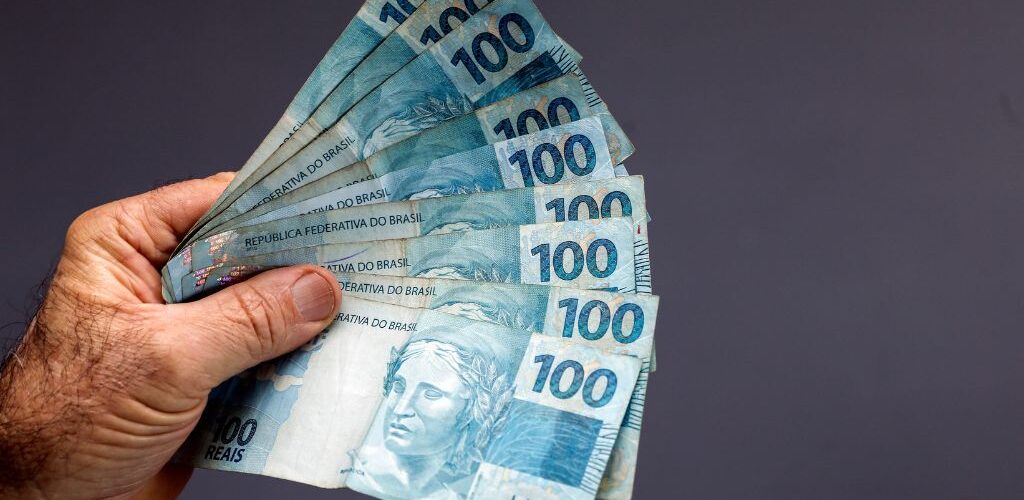
Discover Brazil’s currency insights and travel savvy in our comprehensive guide
As you plan your adventure to this captivating South American destination, understanding the ins and outs of Brazil’s currency, the Brazilian real (BRL), is essential for a smooth and enjoyable trip. In this comprehensive guide, ATM 24h will take you on a journey through the intriguing world of the Brazilian real, uncovering its unique features, exchange tips, and cultural significance.
Mastering the nuances of Brazil’s currency will empower you to make the most of your time in this diverse and enchanting country. Whether you’re exploring the bustling streets of Rio de Janeiro, trekking through the Amazon rainforest, or relaxing on the breathtaking beaches of Bahia. So, let’s dive into the fascinating facts and indispensable tips that will enrich your travel experience in Brazil!
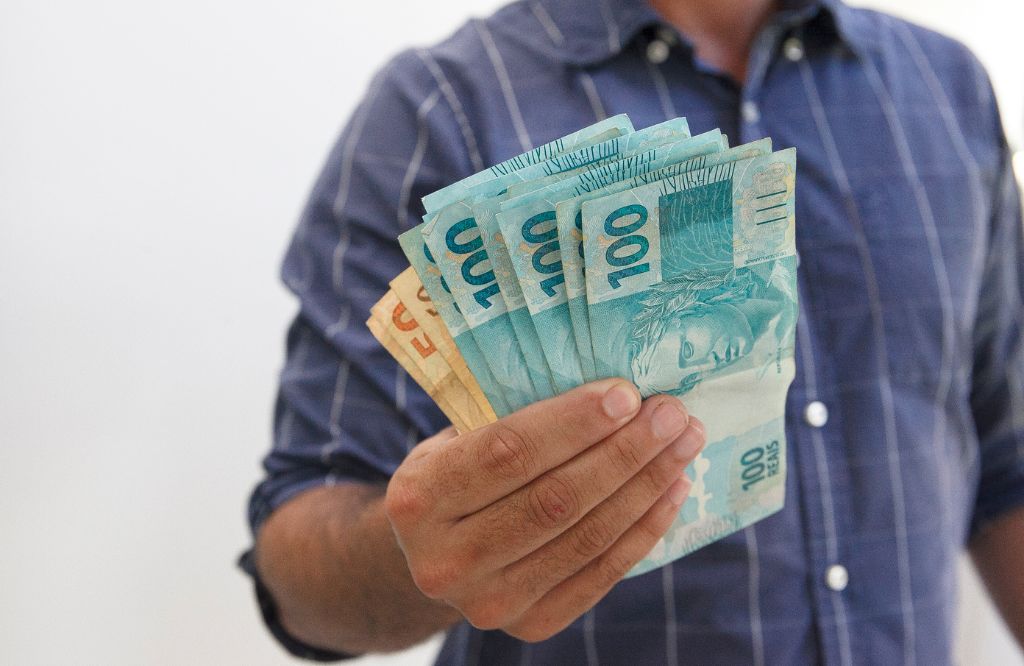
Read in this post
- Some ATM24h throughout Brazil
- Brazil’s currency: Fascinating Facts and Tips
- Discover more about ATM24h
- FAQ
Some ATM24h throughout Brazil
| Location | Address |
|---|---|
| Botafogo Praia Mall (Rio de Janeiro) | See location here |
| Manaus International Airport – Eduardo Gomes (Manaus) | See location here |
| Barra Mall (Salvador) | See location here |
| Tivoli Mofarrej São Paulo Hotel (São Paulo) | See location here |
| Belmond Hotel das Cataratas (Foz do Iguaçu) | See location here |
| Recife/Guararapes International Airport – Gilberto Freyre (Recife) | See location here |
Brazil’s currency: 13 Fascinating Facts and Tips
In this segment, we delve into the captivating world of the Brazilian real, uncovering intriguing facts and providing essential tips to enhance your travel experience in Brazil. Discover the unique features of Brazil’s currency and gain valuable insights to make the most of your journey through this diverse and vibrant country.

1) Symbol and Code
The official symbol for the Brazilian real is “R$,” representing the currency’s unit. It is often placed after the numerical value, such as R$100. Additionally, in international financial markets and currency exchanges, the three-letter code “BRL” is used to identify the Brazilian real.
2) Polymer Banknotes
In 1994, Brazil became one of the early adopters of polymer banknotes, introducing a more durable and secure form of currency. These polymer notes are resistant to wear and tear, lasting longer than traditional paper notes. Travelers will find them practical, especially during adventurous trips where cash may be exposed to harsh conditions.
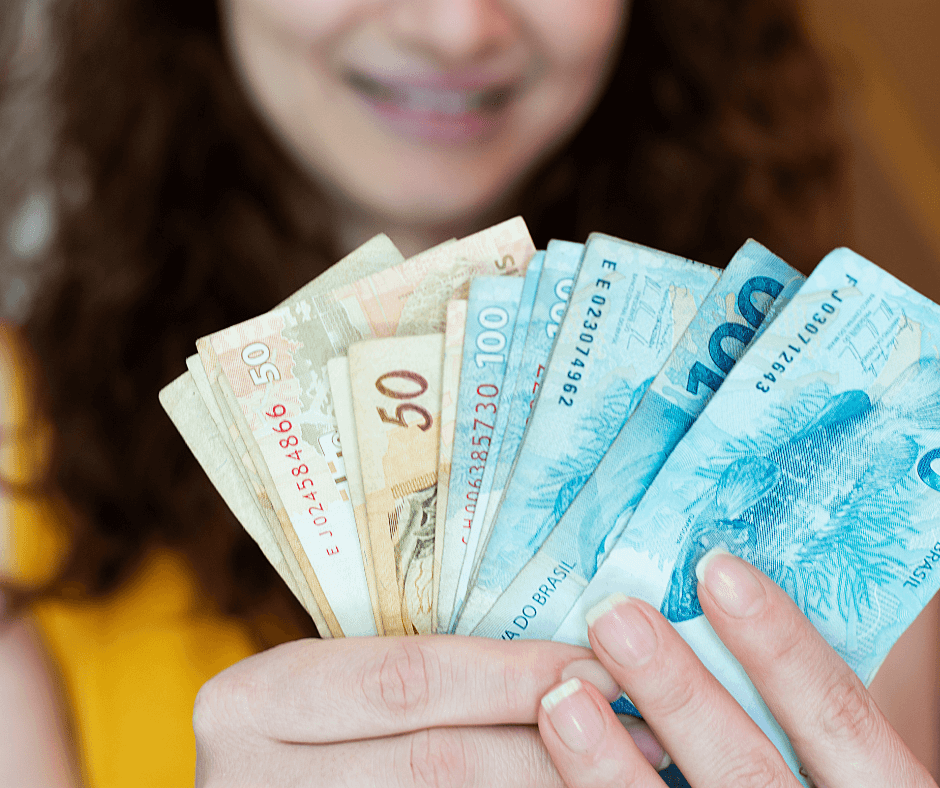
3) Denominations
The Brazilian real comes in various denominations to suit different transactional needs. The most commonly encountered banknotes include R$2, R$5, R$10, R$20, R$50, and R$100. While smaller denominations, like R$1, are still in circulation even after it stopped being produced in 2005, they are less commonly used due to rounding practices.
4) Currency Subunits
The real is divided into smaller units known as centavos. One real is equal to 100 centavos. Despite their existence, centavos are rarely used in daily transactions as prices are usually rounded to the nearest real.
5) Currency Exchange
Before embarking on your journey, it’s essential to exchange your home currency for Brazilian reais. ATMs 24h are a great option, as they have competitive rates and are located in hotels, airports, malls, subway stations and other locations.
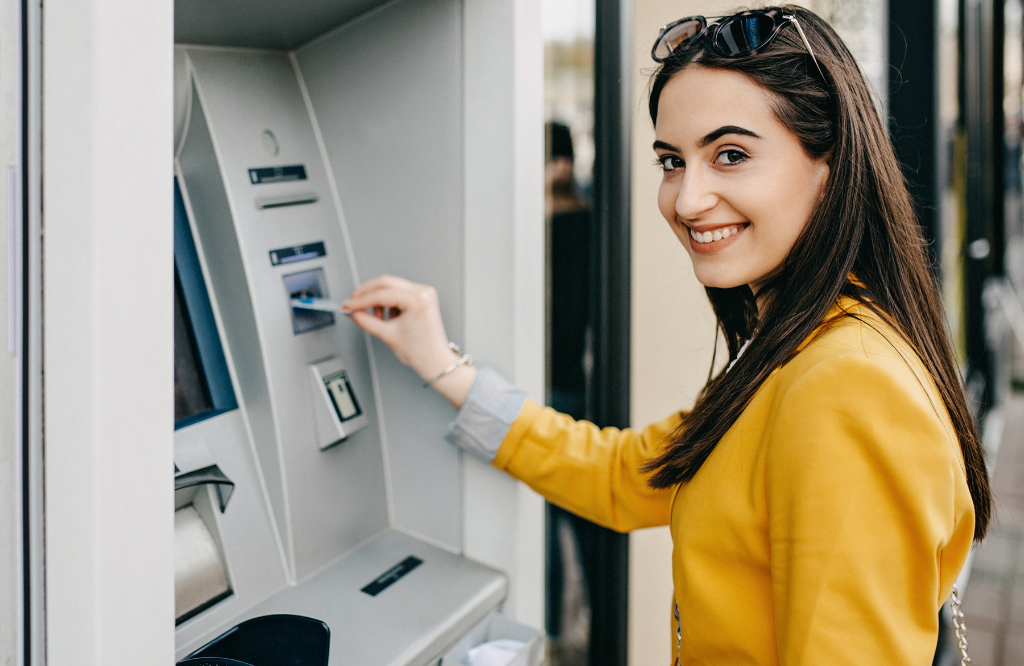
6) Currency for Safety Purposes
It’s advisable to carry a mix of cash and cards for safety purposes. In case of emergencies or unexpected situations where cards may not be accepted, having some cash on hand will provide peace of mind. However, don’t carry excessive amounts of cash with you, especially in crowded places. Utilize the safe deposit boxes available at hotels to store your extra cash and important documents securely.
7) Cultural Sensitivity
When handling money in Brazil, it’s essential to be culturally sensitive. Avoid flaunting large amounts of cash or discussing money matters loudly in public places. This practice shows respect for the local customs and helps prevent drawing unnecessary attention to yourself as a tourist.

8) Credit Cards and ATMs
Major credit cards, such as Visa, Mastercard, and American Express, are widely accepted in urban areas, especially in restaurants, hotels, and retail stores. ATMs are conveniently located throughout the country, allowing you to withdraw reais as needed. However, when traveling to more remote areas, be prepared for limited access to ATMs.
9) Beware of Counterfeits
As with any destination, travelers must be cautious about counterfeit currency. Though not widespread, counterfeit banknotes may occasionally circulate. Familiarize yourself with the security features on Brazilian banknotes to identify genuine bills easily.
One of the essential security features is the watermark, which can be seen when holding the banknote against the light. Also, check for the color-changing ink, holographic stripes, and raised print, as these elements are challenging for counterfeiters to replicate. But you won’t have this problem with ATM 24h. We guarantee that all bills taken from our cashiers are original and safe.
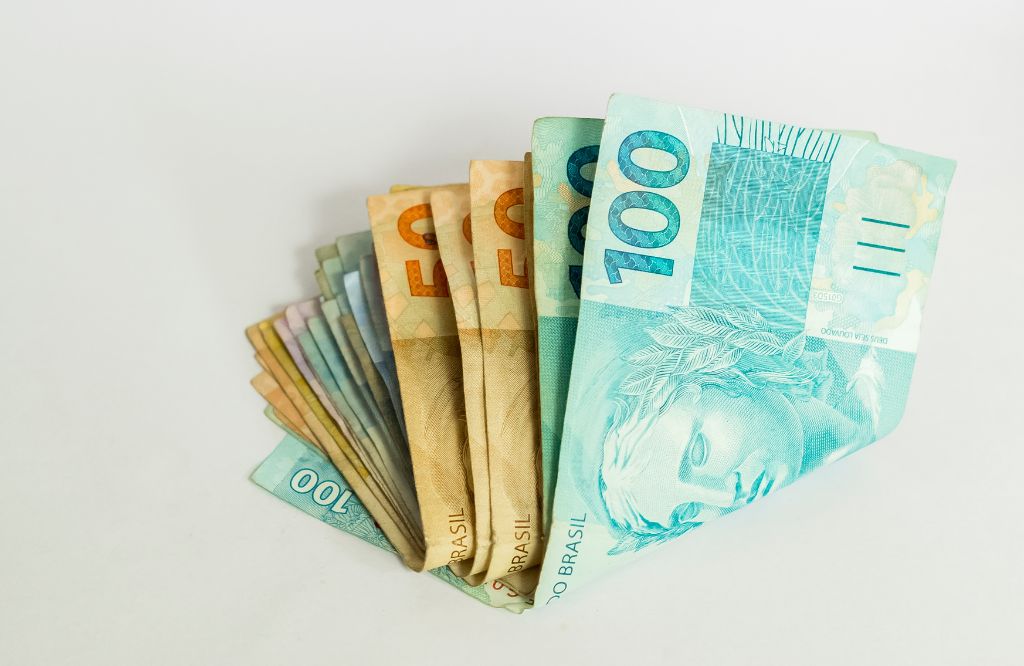
10) Tipping Culture
Tipping in Brazil is not obligatory but is often appreciated for excellent service. In restaurants, a customary tip of around 10% of the bill is considered polite. Some establishments may include a service charge on the bill; in such cases, an additional tip is not necessary. Similarly, for taxi drivers, rounding up the fare or offering a small tip is a kind gesture for their service.
11) Informal Currency Exchange
Avoid engaging in informal or black-market currency exchange, as it is illegal and carries significant risks. Stick to authorized exchange offices to ensure the legitimacy of your transactions and avoid falling victim to scams. Reputable exchange offices will provide you with a receipt for your exchange, ensuring transparency and security.
12) Currency in Remote Areas
When venturing into more remote regions of Brazil, particularly small towns or less-traveled areas, be aware that ATMs might be scarce. It is advisable to carry enough cash to cover your expenses during your stay. While larger cities and tourist destinations offer ample ATM access, having cash on hand in remote areas will save you from potential inconvenience. So, look for a ATM 24h in a larger city before you go.
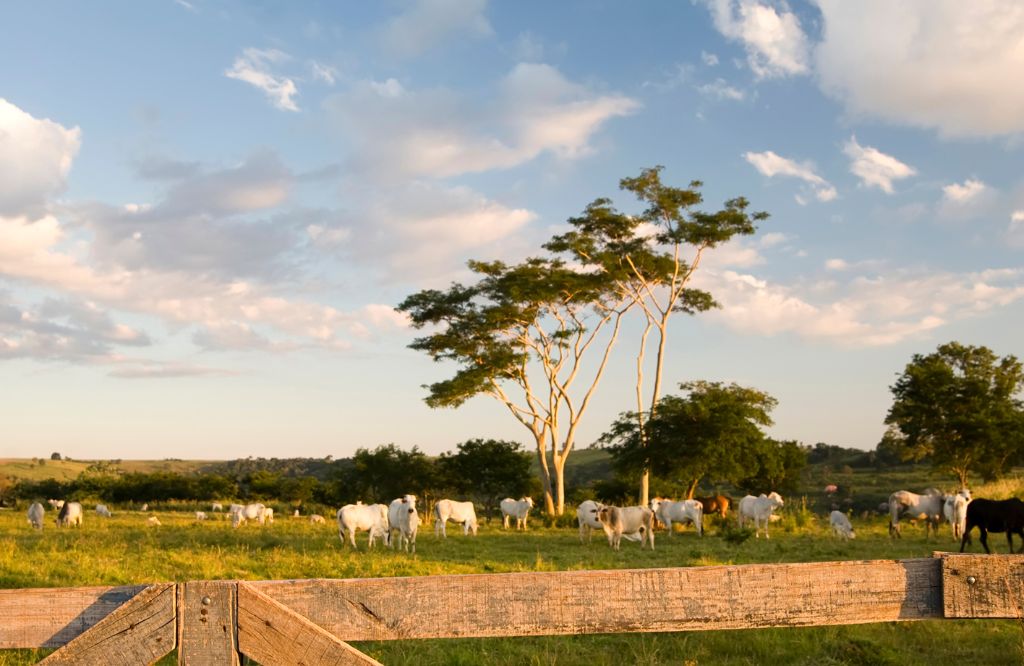
13) Hidden Fees
Some establishments, particularly hotels and restaurants, may apply an additional fee when paying with a foreign credit card. Before making any transactions, inquire about potential hidden fees to avoid unexpected charges. If possible, use your credit card for larger purchases and cash for smaller transactions to minimize fees.
Discover more about ATM24h
ATM24h is a trusted network of ATMs that provides efficient currency exchange services in Brazil. With a widespread presence across the country, ATM24h machines offer competitive exchange rates. We also operate round the clock, ensuring easy access to cash whenever required.
These machines are equipped with advanced security features, providing a secure environment for your transactions. Whether you’re arriving at the airport or exploring popular tourist areas, ATM24h is a reliable choice for money exchange in Brazil.
ATM24h goes beyond the convenience of currency exchange by offering additional services to enhance your financial experience in Brazil. In addition to cash withdrawal in Brazilian Reais, ATM24h machines often provide options for balance inquiries, fund transfers, and bill payments.
This versatility makes us a one-stop solution for various banking needs, allowing you to manage your finances efficiently while on the go.
With user-friendly interfaces and multilingual options, ATM24h machines cater to both local residents and international visitors. As a result, ensure a seamless and hassle-free banking experience throughout your stay in Brazil.
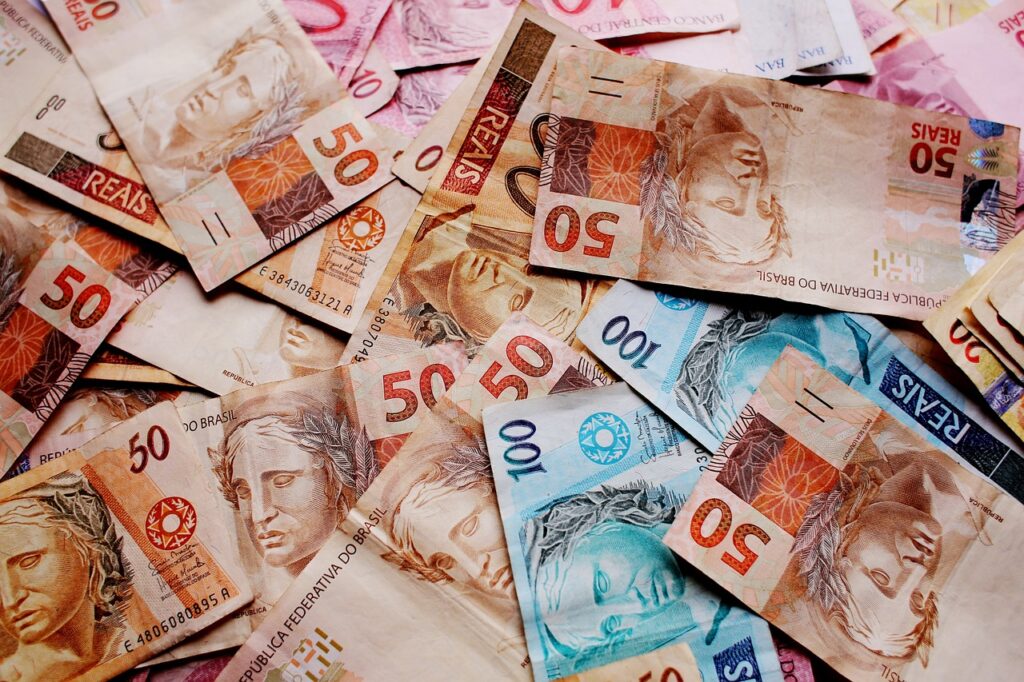
FAQ
The official currency of Brazil is the Brazilian real (BRL). Its symbol is “R$” and is often written after the numerical value (e.g., R$100). The three-letter code used for international financial transactions is “BRL.” Read more in our article.
Yes, Brazil was one of the early adopters of polymer banknotes, introducing them in 1994. Polymer banknotes are durable, resistant to wear and tear, and can withstand harsh conditions, making them convenient for travelers. Read more in our article.
The best option for currency exchange in Brazil is to use ATMs, also known as “caixas 24h” or “ATM 24H.” They are widely available in major cities and tourist areas, offering competitive exchange rates. Simply use your international debit or credit card to withdraw Brazilian reais as needed. ATMs are convenient, safe, and provide access to local currency without the hassle of seeking out exchange offices. However, be mindful of using ATMs in remote areas, as they might be scarce, and it’s wise to carry some cash for emergencies. Remember to inform your bank of your travel plans to avoid any issues with your card during your trip. Read more in our article.



Post a Comment